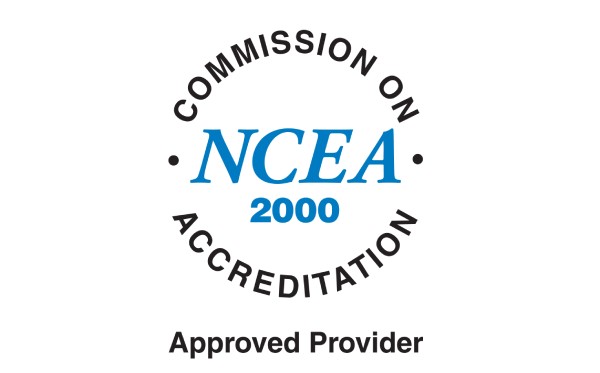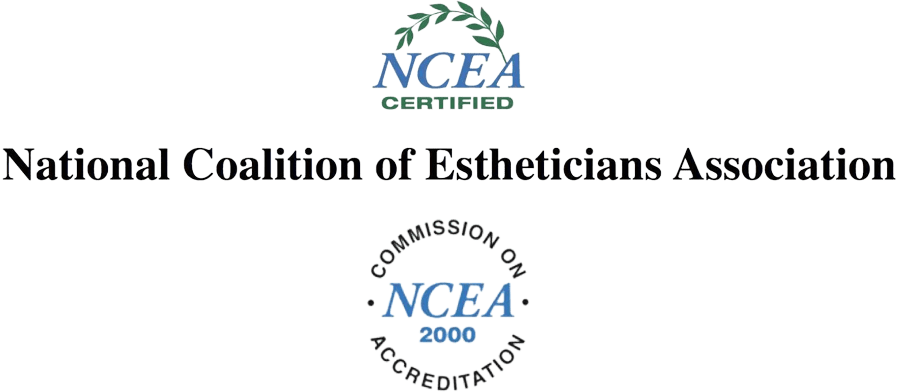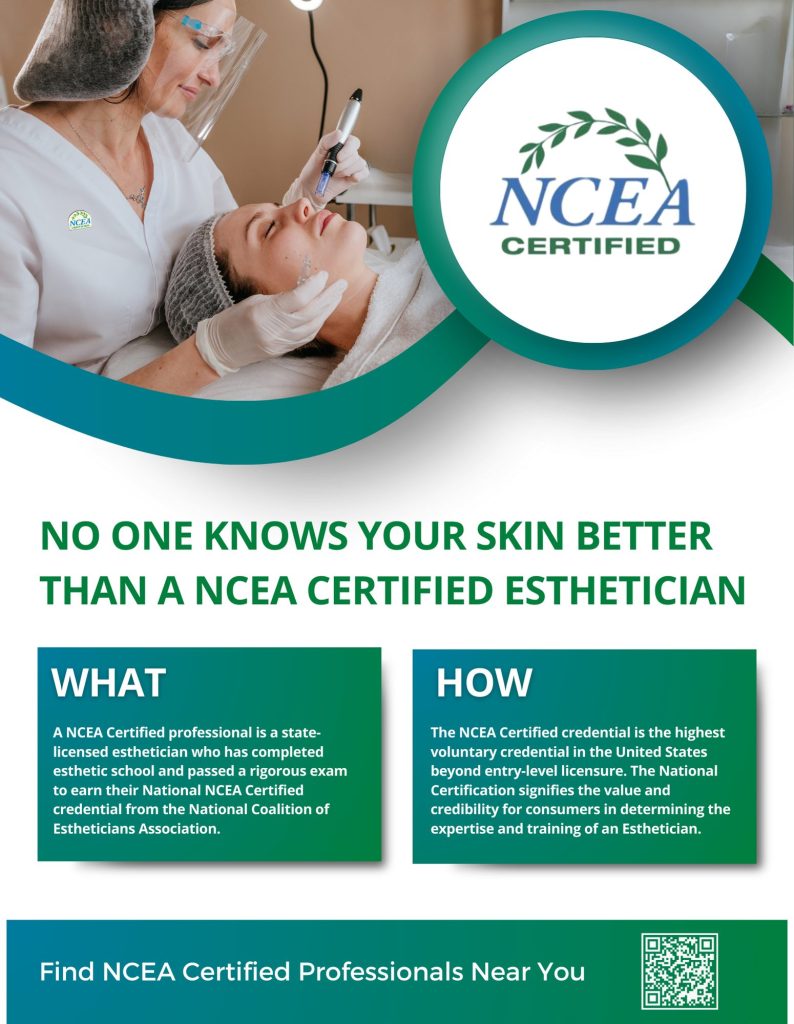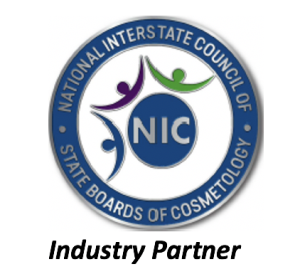Helping Estheticians raise standards with national credentialing and continuing education accreditation.
Earning the National Esthetician Certification is the highest voluntary credential in the United States, elevating professional standards beyond entry-level licensure. The NCEA Certified credential signifies expertise and credibility, helping consumers identify well-trained estheticians. This certification exam is standardized, valid, and legally defensible, ensuring it meets the highest industry standards.
The NCEA continues to educate state regulatory boards and legislators (and other professionals). They need to know that the NCEA Certified credential’s competency-based exam evaluates the Esthetician’s skills and knowledge at a 1200-hour level. NCEA created this affordable pathway for endorsement and/or reciprocity, (exchanging your license) so you can move to another state with higher hours and get a license and/or Advanced or Master Esthetician License.
The majority of states still only require about 600-hours (or less) of schooling in order to get a license. We now have over a dozen states that require more hours (a good thing!). An Esthetician moving from a 600-hour license may be required to go back to school, even with years of work experience (a bad thing!). We are losing Estheticians from this profession due to these roadblocks!
Many states are now recognizing in rule or law that the NCEA Certified credential can be used for equivalency, thereby allowing the Esthetician to exchange their license in that state (and saving the Estheticians $$ from going back to school). By ensuring the Esthetician’s competency through the NCEA Certified credential, a state regulatory board can meet their mission of protecting the consumer and keep Estheticians working in the profession they love.
To learn more about Certifications and why they make sense for your career, read this article published by INDEED here
NATIONAL CONTINUING EDUCATION ACCREDITATION (COA)


HERE IS WHAT ESTHETICIANS ARE SAYING…
“Getting the NCEA Certified credential has increased my confidence and knowledge. I joined the National Coalition of Estheticians Association because they support National Standards for all Estheticians. Raising consumer awareness of our profession is an important part of our growth and future, and being a part of NCEA is how we do it!" S.Adams, Chicago, IL.

WHAT IS A CERTIFICATION?
Certifications are designated credentials earned by an individual to verify their legitimacy and competence to perform a job at a certain level. The NCEA Certified credential is based upon a 1200-hour Job Task Analysis performed at three geographic locations in the United States to determine what tasks are being performed on a national basis.
A Job Task Analysis is an essential step in developing a certification or licensure test that is legally defensible. By knowing what knowledge, skills, or abilities are most commonly used in a profession, helps to shape the pathway to standards.
Why is a JTA so important for certification?
The fundamental goal of psychometrics is validity. The Subject Matter Experts (SMEs) then discuss the role of the certification in the profession, and establish high-level topics that the certification exam should cover.
Certifications vs. licensure
Professional certifications are typically earned through a professional organization or educational institution. If you find that credentialing is required by law before practicing your job, this is called licensure. Licensure is different than professional certification in that for one, it's required by law, as stated above, and it's also obtained through a state agency. In many cases, the processes to become certified strongly resemble the processes of becoming licensed, often only differing only in terms of legality.
Learn more about Advancing Your Career with Professional Certification here
What is a Job Task Analysis? Read this article by Assessment Systems
INTRODUCING OUR DIGITAL STUDY GUIDE Now Available on Amazon and FREE for Kindle Unlimited members!
 Don't forget to leave us your 5-star review and help others discover the benefits of this valuable resource!
Don't forget to leave us your 5-star review and help others discover the benefits of this valuable resource!





